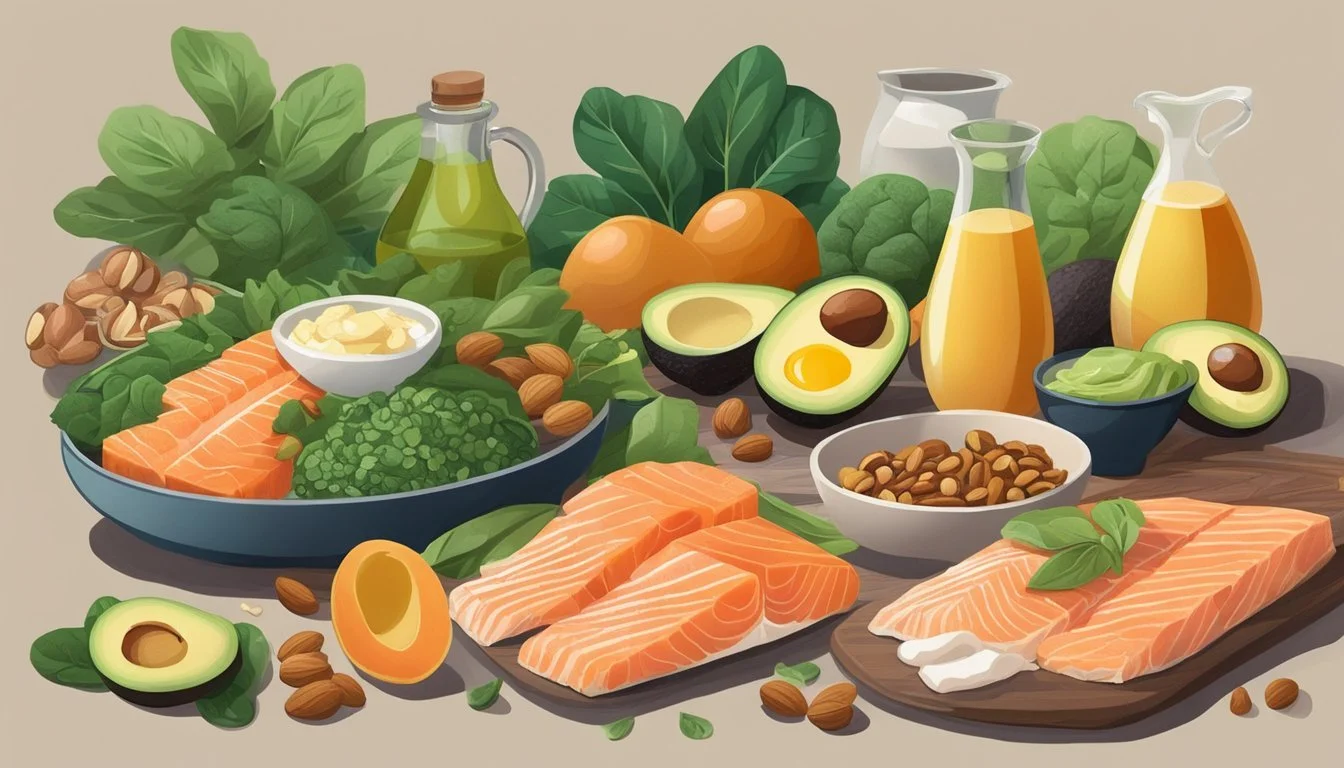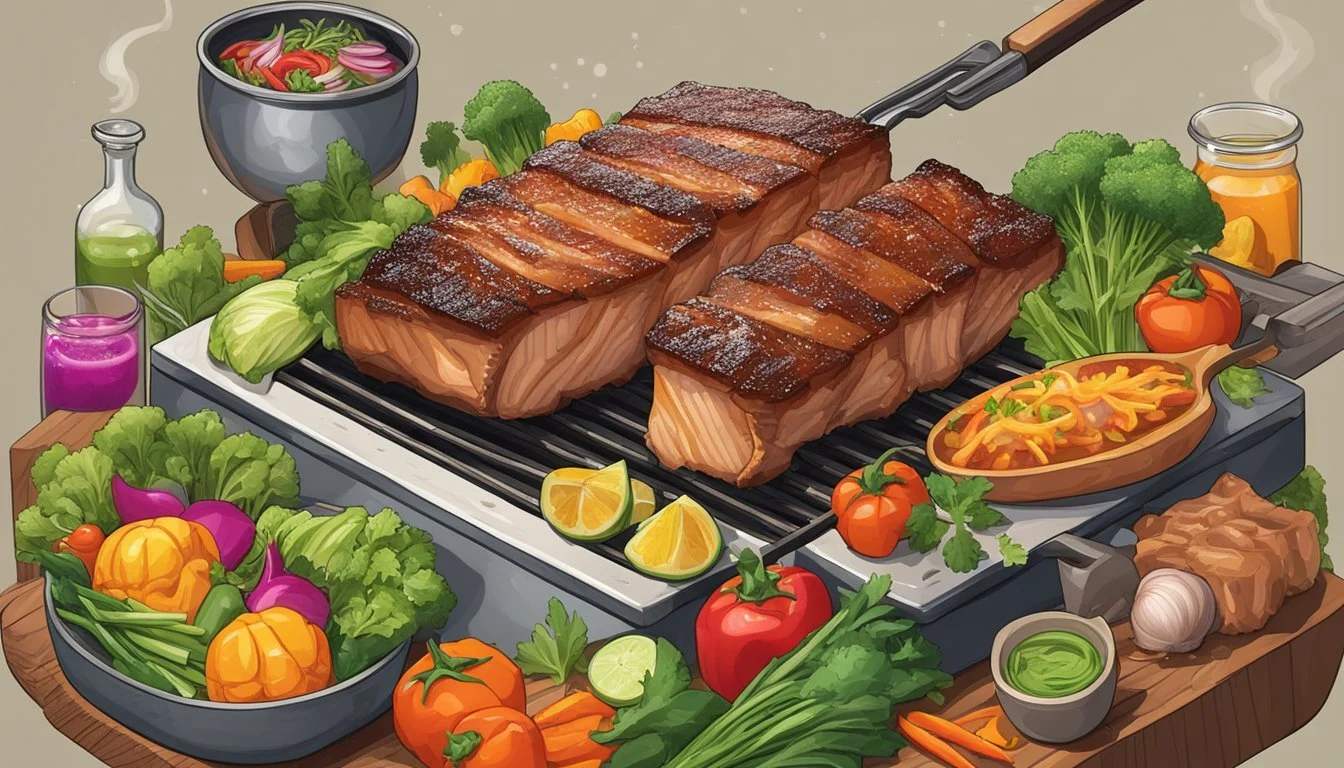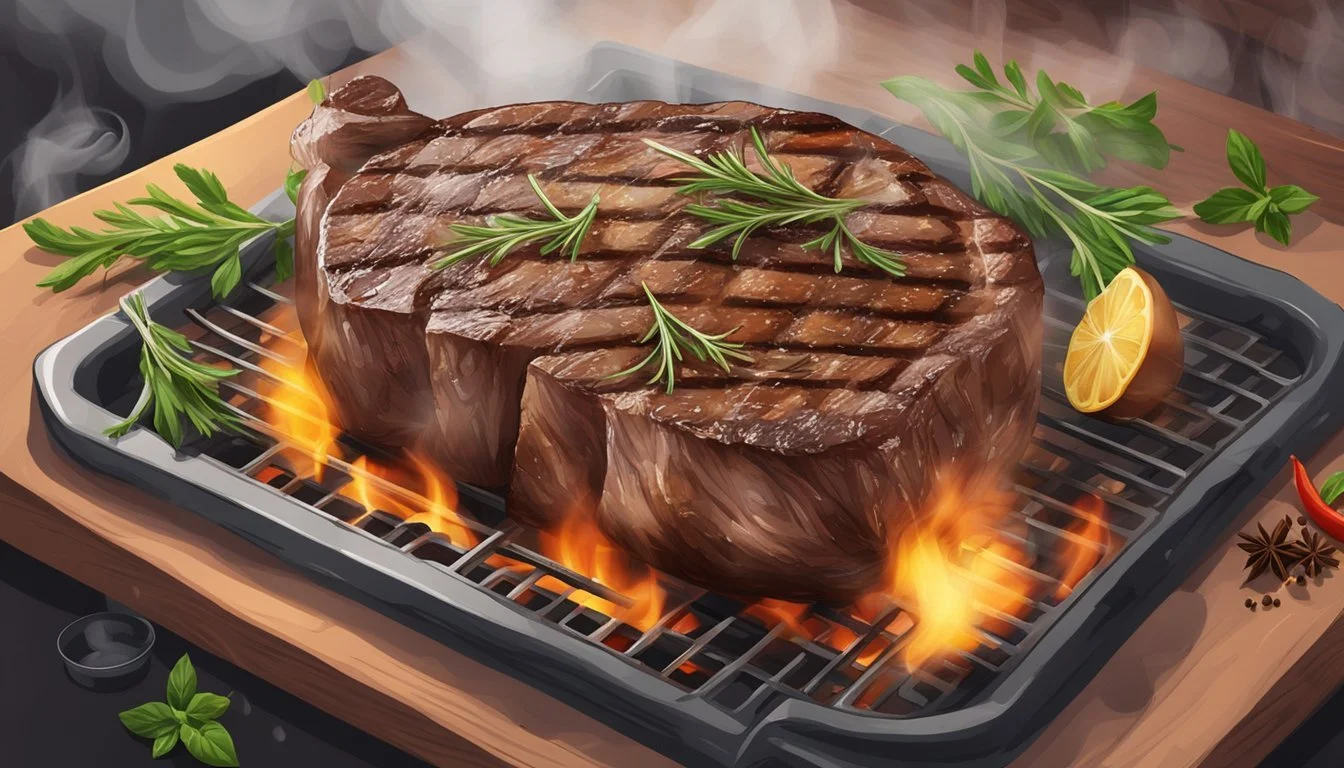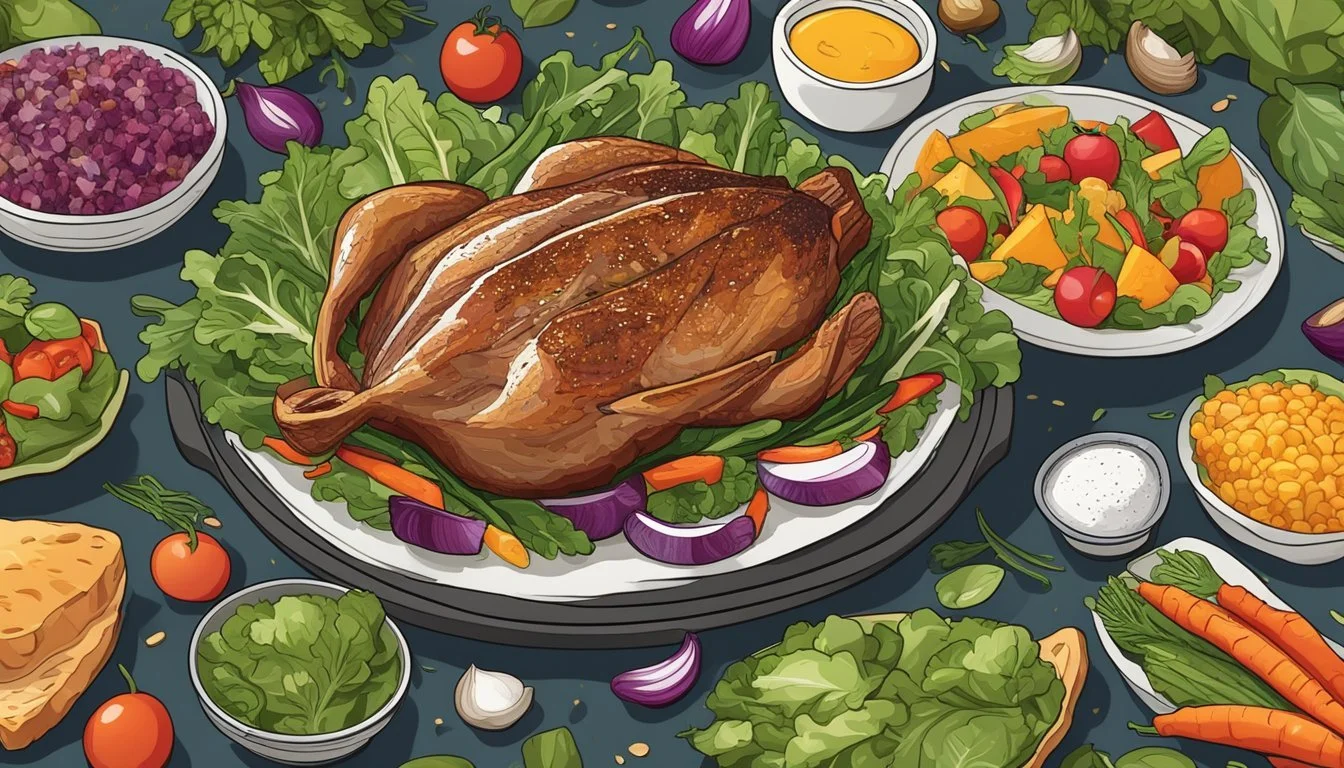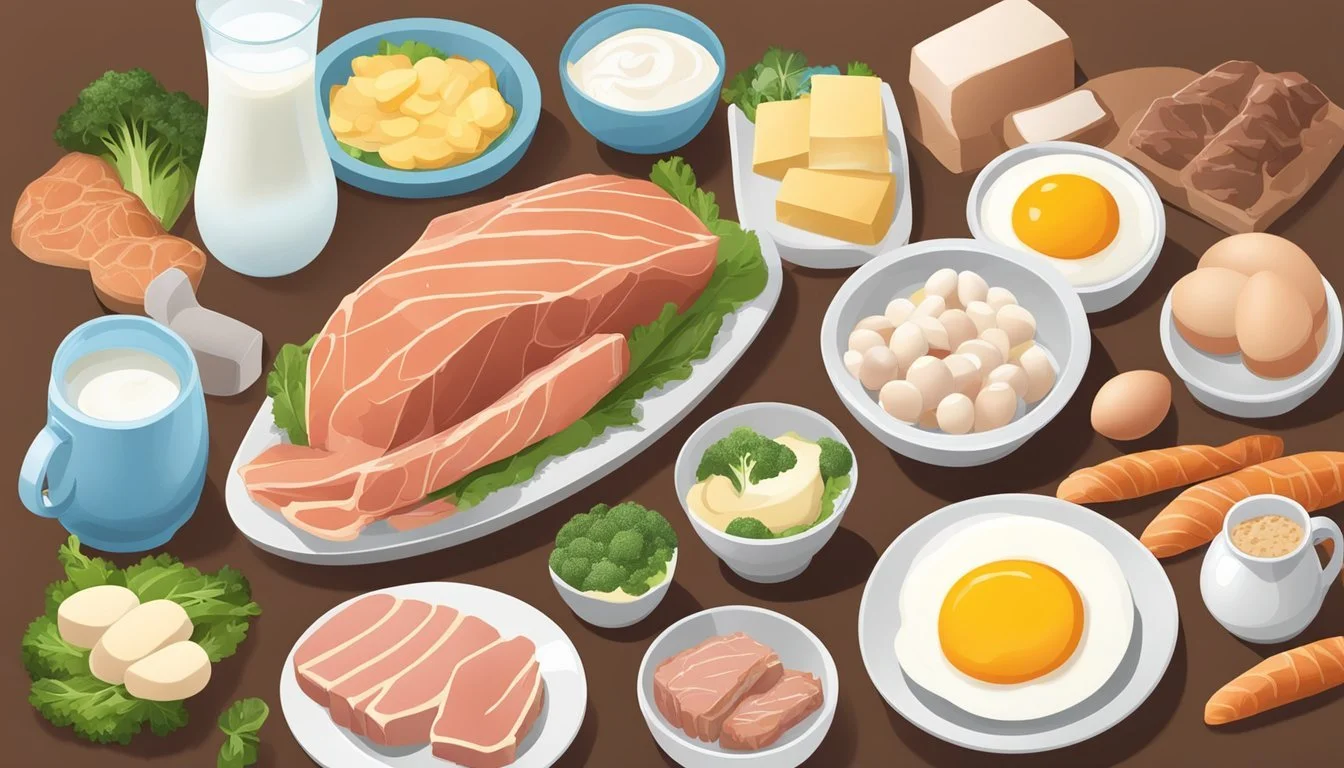10 Carnivore Diet-Friendly Foods for Healthy Hair
Boost Your Locks
The carnivore diet, which emphasizes consuming only animal products, has gained attention for its potential health benefits. Among these benefits, many believe it can support hair health by providing essential nutrients often found in animal-based foods.
Discovering the best carnivore diet-friendly foods for healthy hair could be the key to improving hair strength and vitality. This article explores a curated list of foods from the carnivore diet that might promote hair growth and overall hair health.
1) Grass-Fed Beef
Grass-fed beef stands out as a nutrient-dense choice for those on the carnivore diet, particularly for promoting healthy hair.
This type of beef is rich in high-quality protein essential for keratin production. Keratin is a key structural component of hair.
Grass-fed beef also contains higher levels of omega-3 fatty acids compared to grain-fed beef. Omega-3s help reduce inflammation and support scalp health.
The presence of conjugated linoleic acid in grass-fed beef further contributes to hair health. This compound aids in fat loss and improves body composition.
Additionally, grass-fed beef provides an excellent source of zinc, which boosts hair growth and repair. Zinc deficiencies are often linked to hair thinning or loss.
Vitamin A in grass-fed beef helps maintain sebum production, an oily substance that keeps the scalp moisturized.
Iron is another critical nutrient found abundantly in grass-fed beef. Adequate iron levels ensure proper oxygen transport to hair follicles, stimulating growth.
Opting for grass-fed over grain-fed beef ensures higher nutrient intake, making it a superior choice for those focused on healthy hair through a carnivore diet.
Choosing meats from pasture-raised animals also ensures a more natural diet for the livestock, potentially enhancing the quality of meat consumed.
2) Lamb Chops
Lamb chops are an excellent addition to a carnivore diet for anyone aiming to support healthy hair. Rich in protein, this meat provides the essential building blocks for hair structure. Consuming lamb chops helps in maintaining strong and resilient hair strands.
A 100g serving of lamb chops delivers approximately 25g of protein. This amount of protein aids in tissue repair and growth, which is essential for hair health. High-quality proteins like those found in lamb can contribute to a robust hair growth cycle.
In addition to protein, lamb chops are rich in iron, vital for oxygen transport in the blood. Proper blood circulation ensures that hair follicles receive adequate oxygen, encouraging healthy hair growth. Iron deficiency can lead to hair thinning or loss, making lamb chops a valuable dietary choice.
Lamb chops also contain zinc, another critical nutrient for hair health. Zinc supports the repair and maintenance of hair tissues and ensures proper functioning of the oil glands around hair follicles. Adequate zinc levels help prevent hair shedding and support overall hair volume and strength.
Including lamb chops in a carnivore diet ensures that the body receives phosphorus, which supports bone and scalp health. A healthy scalp is fundamental for nurturing hair growth, making lamb chops a multifaceted food option for those seeking to enhance hair health through their diet.
3) Free-Range Chicken Thighs
Free-range chicken thighs stand out as an excellent choice for those following a carnivore diet and aiming for healthy hair. These cuts are rich in essential nutrients that support hair growth and overall health.
Chicken thighs provide a dense source of protein, which is fundamental for hair structure. Protein helps to strengthen hair strands and promotes new growth. They also contain zinc, an essential mineral involved in hair tissue growth and repair.
Furthermore, free-range chicken thighs are a good source of B vitamins, particularly B12 and biotin. Biotin is known for its role in maintaining hair strength and preventing hair thinning. Vitamin B12 supports the production of red blood cells, ensuring healthy blood flow to the scalp and hair follicles.
Cooking free-range chicken thighs is versatile and straightforward. They can be baked, grilled, or pan-seared while maintaining their high nutritional value. Including these nutrient-rich thighs in your diet can contribute significantly to maintaining healthy, strong hair.
4) Wild-Caught Salmon
Wild-caught salmon is a top choice for promoting healthy hair on a carnivore diet. It provides a rich source of protein, which is essential for hair growth and strength.
Omega-3 fatty acids found in wild-caught salmon reduce inflammation and improve scalp health. This can lead to stronger hair follicles and less hair loss.
In addition to omega-3s, wild-caught salmon is packed with B vitamins, including B6 and B12. These vitamins are crucial for blood circulation and nutrient delivery to the hair roots.
Wild-caught salmon also contains selenium and phosphorus. These minerals support overall hair structure and maintenance.
Incorporating wild-caught salmon into meals can be simple. It can be grilled, baked, or used in recipes like salmon patties and pan-fried dishes.
Those on a carnivore diet benefit from the wide range of vital nutrients in wild-caught salmon, ensuring their hair remains vibrant and healthy.
5) Organic Turkey Breast
Organic turkey breast is a valuable addition to a carnivore diet and can support healthy hair growth.
Rich in high-quality protein, it provides essential amino acids necessary for hair structure.
Turkey breast also supplies zinc, a mineral aiding in cell reproduction and tissue growth.
Another beneficial nutrient found in turkey breast is iron, which helps improve blood circulation to the scalp.
It is also a lean source of energy, making it suitable for various dietary preferences.
Being organic ensures that the turkey is free from added hormones and antibiotics, which is a healthier choice for many people.
Organic turkey breast can be easily incorporated into meals such as salads, wraps, and main dishes.
Cooking turkey breast is versatile and can be grilled, baked, or sautéed, fitting different culinary styles.
Choosing organic helps in maintaining a cleaner diet, which might positively impact overall health.
Including organic turkey breast in a carnivore diet provides nutrients essential for maintaining healthy, vibrant hair.
6) Sardines
Sardines are an excellent addition to a carnivore diet, particularly for individuals seeking to maintain healthy hair. These small fish are packed with essential nutrients that support hair health.
A rich source of omega-3 fatty acids, sardines help nourish the scalp. Omega-3s are known to combat dryness and inflammation, potentially reducing hair thinning and breakage.
Sardines also offer high levels of protein, vital for hair growth and strength. Each serving provides a substantial amount of protein, which is the building block of hair.
Moreover, sardines contain essential vitamins like B12 and D. Vitamin B12 supports red blood cell production, ensuring your hair follicles receive oxygen and nutrients. Vitamin D plays a role in hair follicle cycling, which can contribute to healthy hair growth.
Additionally, sardines are rich in iron, zinc, and magnesium. Iron improves blood circulation, promoting healthier hair follicles. Zinc supports sebum production, keeping the scalp moisturized, while magnesium plays a role in reducing hair shedding.
Including sardines in the diet could provide your hair with a variety of nutrients essential for maintaining its health and appearance.
7) Bone Marrow
Bone marrow is a nutrient-rich option for promoting healthy hair on the carnivore diet. It provides high-quality protein and fat, which are essential for hair growth.
Containing around 7 grams of protein and 84 grams of fat per 100 grams, bone marrow offers a substantial dose of these vital nutrients. Protein supports the production of keratin, the primary structural component of hair.
Bone marrow is also rich in collagen, glycine, and glucosamine. Collagen enhances hair strength and elasticity, reducing breakage. Glycine helps maintain healthy hair follicles, while glucosamine supports scalp health.
Vitamin K2 present in bone marrow contributes to improved blood circulation, potentially enhancing hair growth. This combination of nutrients makes bone marrow a beneficial addition to a hair-healthy carnivore diet. Cooking methods like roasting or grilling can make it a versatile and delicious inclusion in meals.
8) Pork Belly
Pork belly is a nutrient-dense choice for those on the carnivore diet. Rich in essential vitamins and minerals, it provides significant amounts of niacin, vitamin B6, and magnesium.
These nutrients are crucial for maintaining healthy hair. Niacin helps improve blood circulation to the scalp, promoting hair growth and strength. Vitamin B6 supports the production of hemoglobin, which carries oxygen to hair follicles, fostering healthier hair.
Additionally, pork belly's high-fat content offers another benefit. Healthy fats are vital for scalp health, ensuring the skin remains moisturized and reducing dryness that can lead to hair breakage.
In a carnivore diet, pork belly can be prepared in various ways. Baking it at a high temperature followed by low roasting results in crispy, tender meat that fits well into regular meal plans. This variety not only ensures nutrient intake but also adds flavor and texture to the diet.
9) Venison Steak
Venison steak is a nutritious option for those following the carnivore diet and looking to maintain healthy hair. Rich in protein, venison provides essential amino acids necessary for hair growth and strength.
The B-vitamins in venison, such as B12 and riboflavin, support cell production and repair, which are vital for hair follicles. Additionally, venison is a good source of iron, which aids in oxygen transport to hair roots, enhancing hair vitality and preventing thinning.
Venison is relatively low in fat compared to other red meats, making it a leaner option that still delivers powerful nutrients. Its high zinc content also helps maintain healthy hair by supporting the oil glands around hair follicles.
To prepare venison steak, it can be grilled, pan-seared, or broiled to your preferred level of doneness. Marinating the meat before cooking can help tenderize it and enhance its flavor.
Venison's unique flavor and tender texture make it an enjoyable addition to any carnivore diet meal plan, especially for those prioritizing hair health.
10) Duck Breast
Duck breast is a valuable addition to the carnivore diet for promoting healthy hair. It is rich in high-quality protein, which is essential for hair growth and repair.
The protein found in duck breast contains all the essential amino acids that support keratin production. Keratin is a crucial structural protein in hair.
Duck breast is also an excellent source of B vitamins, including B6 and B12. These vitamins play a role in red blood cell formation, which helps carry oxygen and nutrients to hair follicles, promoting hair health.
Additionally, duck breast provides iron. Adequate iron levels are necessary to prevent hair loss and ensure healthy hair growth. Iron helps in maintaining proper blood circulation to the scalp.
The presence of selenium in duck breast can also benefit hair health. Selenium is an antioxidant that helps protect hair follicles from damage caused by free radicals.
Duck breast includes zinc, another important mineral for hair. Zinc plays a crucial role in hair tissue growth and repair. It also helps keep oil glands around follicles working properly.
Incorporating duck breast into the carnivore diet adds variety and nutrient density, supporting overall hair health. It is a versatile meat that can be prepared in various ways, making it a tasty and beneficial choice for those following this dietary approach.
The Importance of Nutrition for Healthy Hair
Nutrition plays a crucial role in maintaining and promoting hair health. Ensuring that your hair receives the right nutrients can lead to stronger, shinier, and healthier hair.
Essential Nutrients for Hair Growth
Certain nutrients are key to hair growth. Protein is one of the most important, as hair is primarily composed of keratin, a type of protein. Consuming adequate protein helps in the formation and repair of hair structure.
Iron is another vital nutrient. It helps red blood cells carry oxygen to hair follicles, promoting growth. Biotin (Vitamin B7) supports hair and scalp health. A deficiency can lead to hair thinning and loss. Zinc aids in hair tissue growth and repair and keeps the oil glands around hair follicles working properly.
Vitamin A supports the production of sebum, an oily substance that moisturizes the scalp. Essential Fatty Acids like Omega-3s nourish hair follicles and may increase hair density.
How a Carnivore Diet Supports Hair Health
The carnivore diet, which consists exclusively of animal products, can provide many of these essential nutrients in abundance. Red meat, for example, is rich in iron and zinc, while organ meats like liver are excellent sources of biotin and vitamin A.
Fish and seafood offer high levels of Omega-3 fatty acids, which support scalp health. Eggs are a complete protein source and also contain biotin. Bone broth is another potential addition, providing collagen, which may support the structure of hair follicles.
While the carnivore diet can supply key nutrients for hair health, it is important to monitor nutrient intake and consult with a healthcare provider to ensure a balanced approach.
The Role of Protein in Hair Strength
Protein plays a critical role in maintaining healthy hair, providing the necessary building blocks for hair growth and strength. Two key aspects of protein's impact on hair are its involvement in keratin production and the benefits of animal-sourced protein.
Keratin and Hair Structure
Keratin is a fibrous structural protein that makes up the majority of hair. Composed of long chains of amino acids, it provides strength and resilience to hair. These amino acids, including cysteine, are abundant in animal proteins. When the body has an adequate supply of protein, it efficiently produces keratin, leading to stronger hair that is less prone to breakage and damage.
Inadequate protein intake hampers keratin production, resulting in weaker hair. Fragile, brittle hair is often a sign of protein deficiency. Consuming sufficient protein ensures the body can produce ample keratin, supporting the maintenance of strong hair structure. Given its importance, a diet rich in animal protein directly supports the structural integrity of hair.
Benefits of Animal-Sourced Protein
Animal-sourced proteins, such as beef, poultry, fish, and eggs, are complete proteins. They contain all essential amino acids necessary for keratin synthesis. These foods not only provide high-quality protein but also deliver other critical nutrients like biotin, zinc, and iron, which further contribute to hair health.
For instance, beef and eggs are rich in iron and biotin, important for maintaining strong hair. Poultry offers lean protein, minimizing the intake of saturated fats while maximizing nutrient density. Fish, particularly fatty fish like salmon, contains omega-3 fatty acids that complement protein in promoting hair strength and luster.
Incorporating a variety of these animal-sourced proteins ensures a balanced intake of essential nutrients. This dietary approach supports the body’s capacity to maintain and strengthen hair through efficient keratin production and overall nutrient provision.
Vitamins and Minerals Vital for Hair Health
Vitamins and minerals play a significant role in maintaining healthy hair. Specific nutrients such as B vitamins, iron, and zinc are particularly vital in supporting hair growth and strength.
Vitamin B Complex
Vitamin B complex includes several vitamins like B7 (biotin), B6, and B12, which are crucial for hair health. Biotin aids in the production of keratin, a fundamental protein for hair. Deficiencies in biotin can lead to hair thinning and hair loss.
Vitamin B6 helps in the production of red blood cells, which carry oxygen and nutrients to the scalp and hair follicles. Vitamin B12 supports cell division and new hair growth, ensuring that follicles receive adequate nutrition. Including B vitamins in the diet can help maintain the overall health and vitality of hair.
Iron and Zinc
Iron is essential for the transportation of oxygen to the hair roots, which promotes growth. Low levels of iron can cause hair to become weak and thin, leading to potential hair loss. Iron-rich foods like red meat, liver, and shellfish are highly recommended on a carnivore diet.
Zinc plays a crucial role in hair tissue growth and repair. It keeps the oil glands around follicles working properly, which is essential for preventing hair fall and maintaining scalp health. Zinc can be found in foods such as beef, pork, and lamb, making it easily accessible for those following a carnivore diet.








